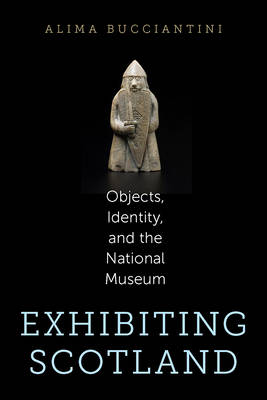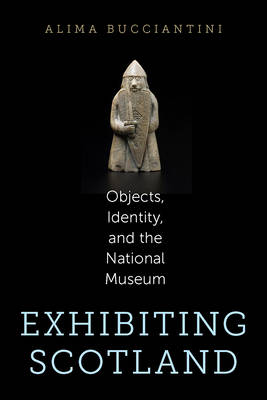
- Afhalen na 1 uur in een winkel met voorraad
- Gratis thuislevering in België vanaf € 30
- Ruim aanbod met 7 miljoen producten
- Afhalen na 1 uur in een winkel met voorraad
- Gratis thuislevering in België vanaf € 30
- Ruim aanbod met 7 miljoen producten
Zoeken
€ 118,95
+ 237 punten
Uitvoering
Omschrijving
In 1707 Scotland ceased to exist as an independent country and became part of Great Britain. Yet it never lost its distinct sense of identity, history, and politics. To preserve the country's unique antiquities and natural specimens, a Scottish earl founded the Society of Antiquaries of Scotland in 1780, at the beginning of the Enlightenment's museum boom. Now numbering twelve million objects and specimens and representing everything from archaeology to applied arts and design, from social history to science and the natural world, these collections formed the foundation for what eventually became the National Museum of Scotland. In Exhibiting Scotland, Alima Bucciantini traces how these collections have helped tell the changing stories of this country for centuries and how the museum reflects the Scots' continuing negotiation of their place within modern Britain.
Specificaties
Betrokkenen
- Auteur(s):
- Uitgeverij:
Inhoud
- Aantal bladzijden:
- 252
- Taal:
- Engels
- Reeks:
Eigenschappen
- Productcode (EAN):
- 9781625343284
- Verschijningsdatum:
- 26/07/2018
- Uitvoering:
- Hardcover
- Formaat:
- Genaaid
- Afmetingen:
- 157 mm x 231 mm
- Gewicht:
- 476 g

Alleen bij Standaard Boekhandel
+ 237 punten op je klantenkaart van Standaard Boekhandel
Beoordelingen
We publiceren alleen reviews die voldoen aan de voorwaarden voor reviews. Bekijk onze voorwaarden voor reviews.











